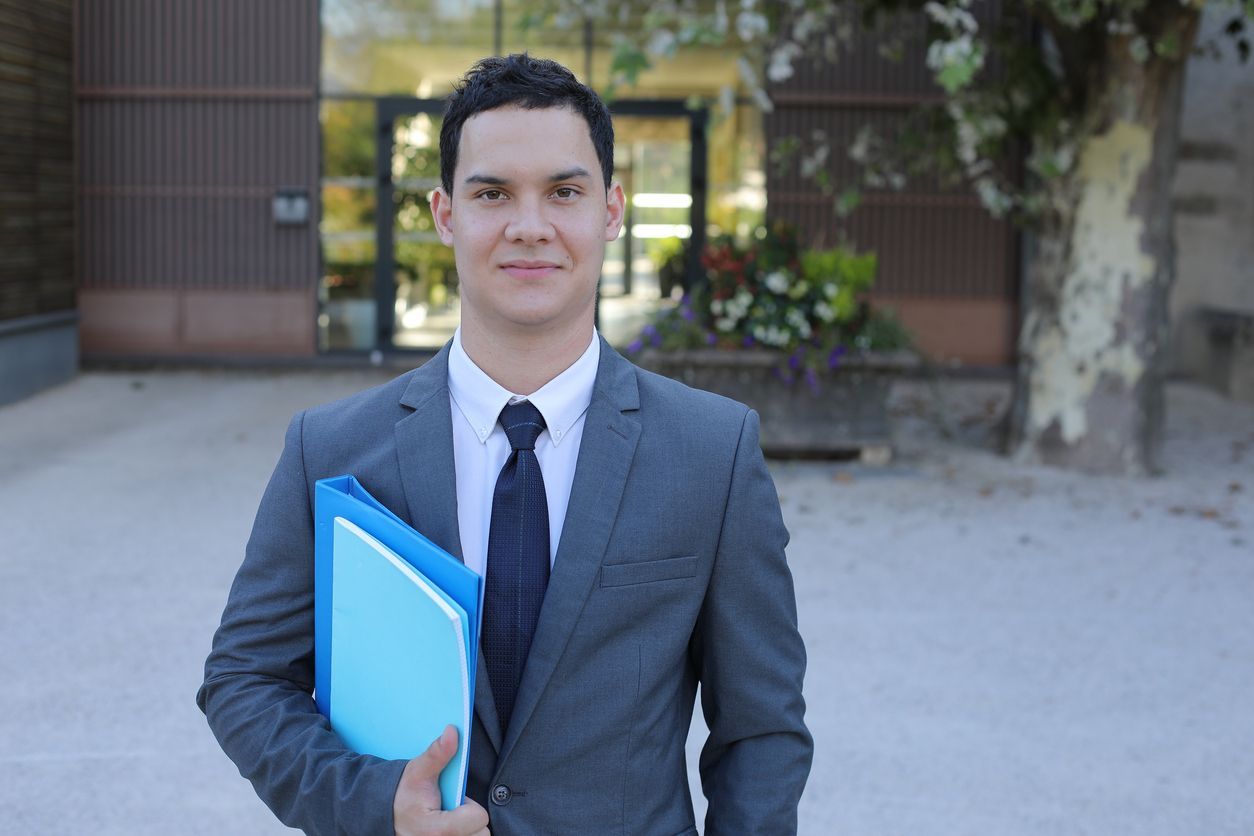This page is licensed under Creative Commons under Attribution 4.0 International. Anyone can share content from this page, with attribution and link to College MatchPoint requested.
Inside a Successful UT Austin McCombs Application: Curiosity, Initiative, and a Surprising Summer Job
In this year’s ultra-competitive UT Austin admissions cycle, the most successful applicants didn’t just have high test scores—they had stories. They showed initiative, reflected deeply on their experiences, and demonstrated clear fit to their first-choice major.
This case study highlights one of those standout applicants: a student admitted to the McCombs School of Business who didn’t take the traditional business path. Instead, their journey included a career pivot, a coffee shop job, and an unexpected entrepreneurial venture—all tied together by curiosity, initiative, and thoughtful reflection.

From Medicine to Business: A Purposeful Pivot
This student began high school with eyes on a future in medicine. They shadowed a pediatrician and explored science-heavy coursework early on. But something didn’t quite click. As they reflected on what energized them most, they realized it wasn’t biology—it was problem-solving, numbers, and strategy.
Instead of staying the course, they made a bold pivot. They enrolled in a summer investment program and joined their school’s business incubator, where they took on the finance lead for a student-run startup. They weren’t just testing an interest—they were building experience. This pivot laid the foundation for a compelling “fit to major” story.
A Summer Job Turned Real-World Business Lab
The summer before senior year, this student took a full-time job as a barista at a local coffee shop. At first, they worried it wasn’t “impressive enough” for a McCombs application. But they didn’t treat it as just a job—they treated it as a case study in business operations.
They developed a rapport with the store’s regional manager, who invited them to sit in on a budgeting meeting. Those conversations sparked deeper questions about how businesses scale, manage people, and make financial decisions.
On long drives to and from work, the student noticed large stretches of undeveloped land. Already a hobbyist drone pilot, they began filming the land and editing marketing-style videos. Then came the leap: they pitched the footage to real estate developers—and sold multiple drone packages. It wasn’t a school project. It wasn’t an assignment. It was a self-initiated, real-world entrepreneurial win.
What Made This Application Stand Out
UT Austin’s McCombs School of Business is highly selective, especially for non-auto admit students. What made this student’s application stand out wasn’t perfect scores—it was a clear and authentic connection to business.
Their application communicated:
- A track record of intellectual curiosity—from finance courses to summer programs
- Meaningful leadership and initiative in their business incubator project
- Real-world entrepreneurial experience, including launching and monetizing a service
- The ability to reflect on how those experiences shaped their goals and values
Their essays told a cohesive story of discovery and drive. They didn’t try to sound like someone they weren’t—they leaned fully into their own experiences and let the connections speak for themselves.
The Outcome
This student was admitted to UT Austin’s McCombs School of Business in one of the most competitive admissions years in school history. They weren’t the highest GPA in the class or the most decorated competition winner—but they were exactly what McCombs looks for: a student who thinks like a business leader, takes initiative, and builds with purpose.
Parent Takeaways from the Class of 2025 Cycle
- Pivots can be powerful: A change in academic direction, when thoughtful and well-supported, signals growth—not indecision.
- Jobs count: A summer job can demonstrate work ethic, maturity, and even uncover unexpected opportunities.
- UT wants evidence, not just interest: The best McCombs applicants show fit to major through real actions—courses, jobs, side projects—not just words.
- Reflection matters: Successful applicants didn’t just list achievements. They told stories of how those experiences shaped their goals and values.
This student’s journey to McCombs is a powerful reminder: it’s not about checking boxes—it’s about connecting the dots.


